If you were wondering what flowers to buy for the following season, you can just scroll along and see which of the ten, beautiful flowers that we picked is going to work for you. No matter if you want your colors to be white, pink, purple or colorful, we are sure you are going to find what you need!
1. Snowdrop Anemone
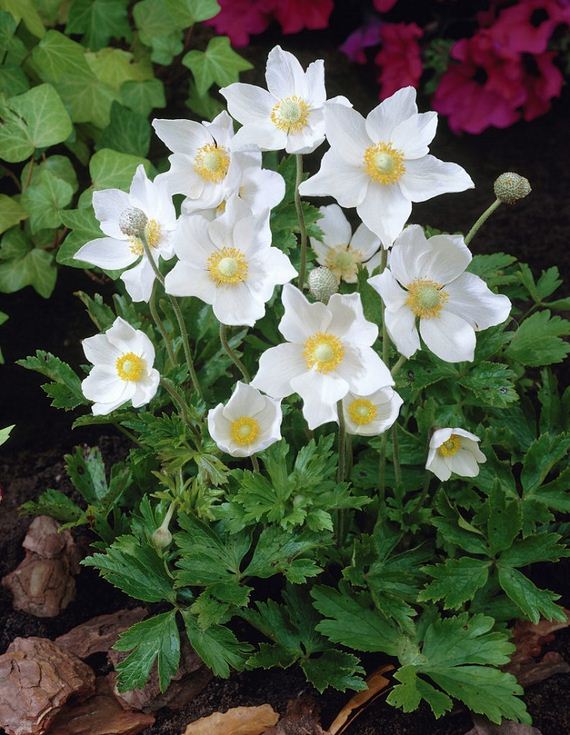
via 99roots.com
The Snowdrop Anemone grows in well-drained soil and blooms in late spring or early summer. It needs to be watered regularly during the first season of growing in order to establish good root system. Also, make sure to water it if the weather is too hot outside and divide the clumps every 2-3 years. The Snowdrop Anemone needs full to partial sun for best growth.
2. Peruvian Lily
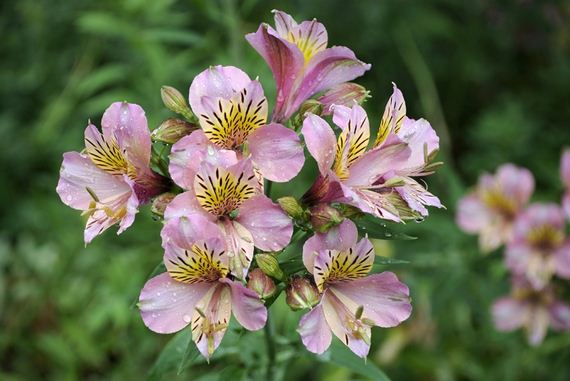
The Peruvian Lily blooms in late spring or early summer and is available in more colors, such as pink, orange and white, to name few. These flowers become invasive when growing and require more space because of that. Full sun location is the best for them, but they’ll need partial shade during hot weather. The Peruvian Lily needs to be watered regularly and if it dries out, cut it back to 4 inches.
3. ‘Grand Maître’ Crocus
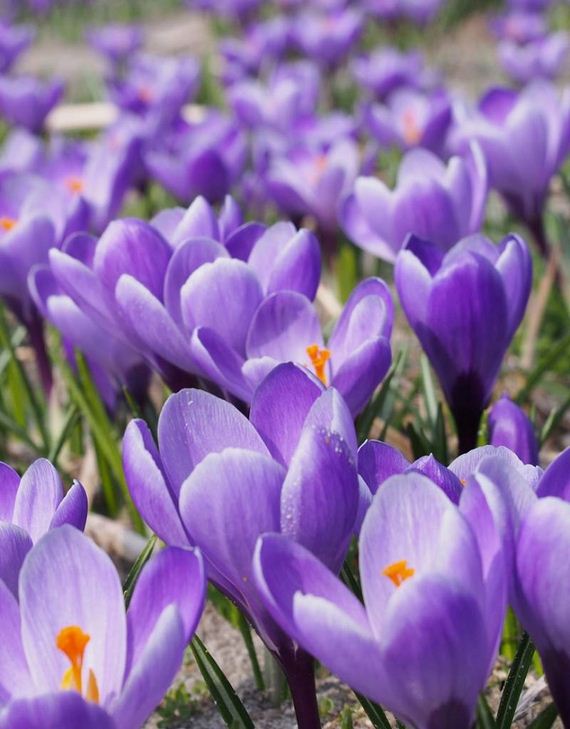
via sterkebollen.nl
The ‘Grand Maître’ Crocus is a hardy plant that needs a lot of sun and well-drained soil. You can use sand, clay, chalk and loam. These pretty, violet flowers are generally trouble-free and unlike most of the flowers on the list, they do not need pruning.‘Grand Maître’ Crocus grow up to 10 cm and it might take them up to 2.5 years to reach the ultimate height.
4. Tulips
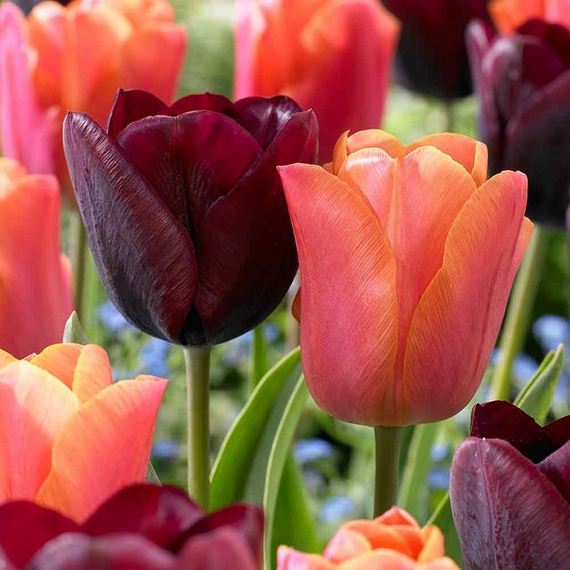
via jparkers.co.uk
Tulips should be planted as soon as possible in spring – the earlier, the better. They come in so many varieties and colors, that you will find it hard to pick just one! They do best in places where there are dry summers and cold winters. Some gardens treat tulips as annuals and plant them anew every year, but in fact these pretty spring flowers are perennials. They are easy to take care of and will certainly make your garden so beautiful!
5. Pansies
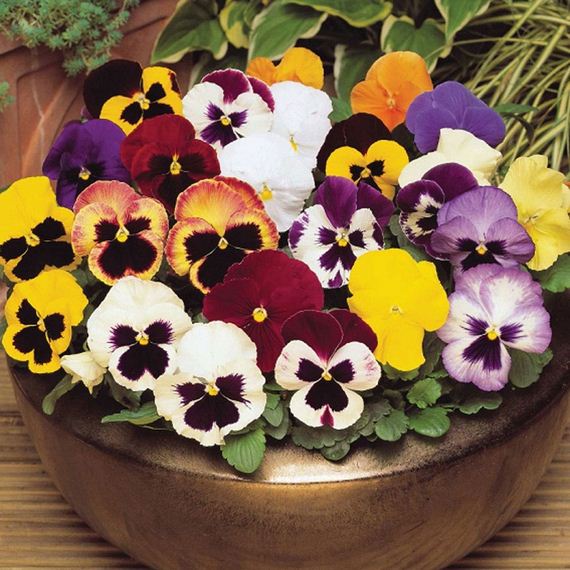
Known as the flowers with faces, the pansies come in so many colors that are making them even more irresistible! They require well-drained, moist and humus-rich soil, while when it comes watering, make sure to do it regularly – it is one of the most common reasons why pansies fail. To help them grow, use an all-purpose fertilizer.
6. Double Daffodils
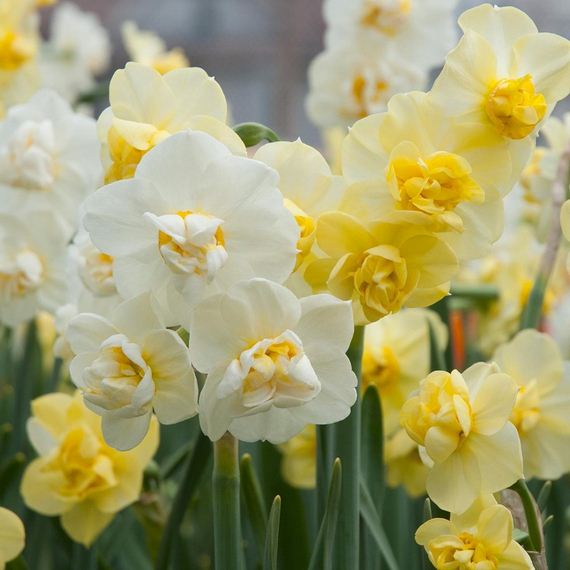
via colorblends.com
What makes these daffodils so special is that they have so many petals in the center! These spring bloomers come in different colors, such as yellow, white and pink. They need full or partial sun location and well-drained soil. Daffodils are considered as the sign that spring has arrived, so why not invite it in your garden? Note that these flowers are toxic for pets!
7. Grape Hyacinth
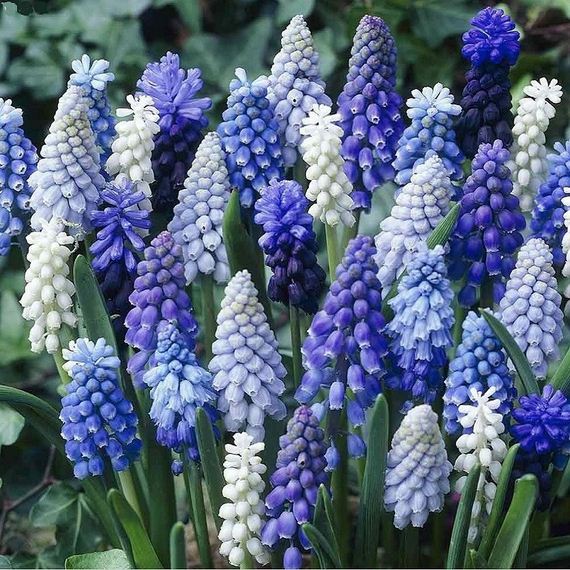
The Grape Hyacinth is a very invasive flower – they spread very quickly, so it’s important to think carefully where would you like to plant them. They don’t need fertilizers and most of the time they bloom in mid-spring. The Grape Hyacinth needs full sun or partial shade and definitely isn’t a fan of extremes – avoid planting them on places where it’s too dry, wet or hot.
8. Byzantine Gladiolus
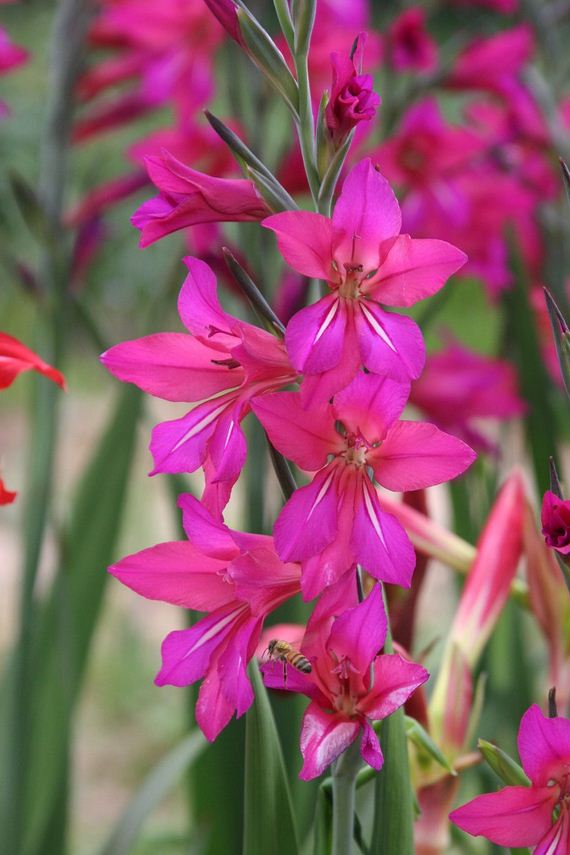
via mysanantonio.com
Native of Spain, northwest Africa, and Sicily, the Byzantine Gladiolus will certainly make your garden as if it came out from a fairy tale. These beautiful flowers require full sun to partial shade and well-drained soil. The flowers are hardy where soil doesn’t freeze during winter and it’s good to protect these perennials with mulch.
9. Bowles Mauve
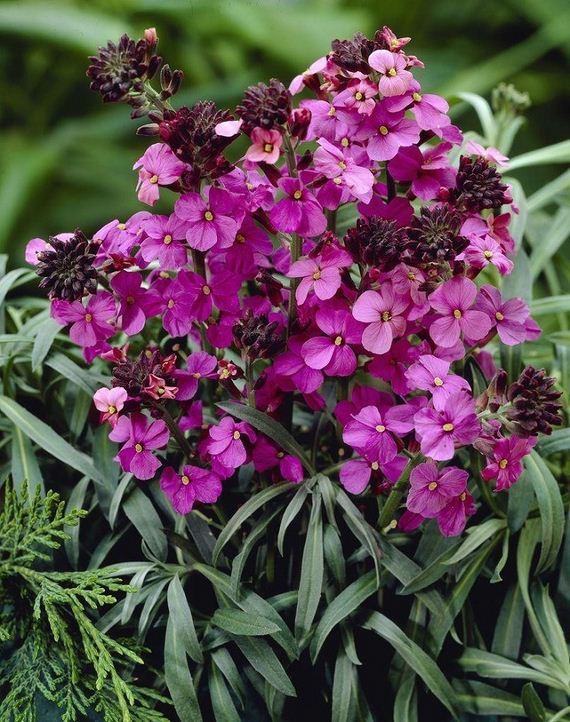
The Bowles Mauve needs to be planted in poor to moderately fertile, well-drained soil and plenty of sun! These beautiful wallflowers is propagated by semi-hardwood cuttings in spring or summer. In order to prevent it from becoming leggy, trim the flowers just a little bit after flowering. The Bowles Mauve is prone to snug, snails and flea beetles.
10. Bleeding Hearts
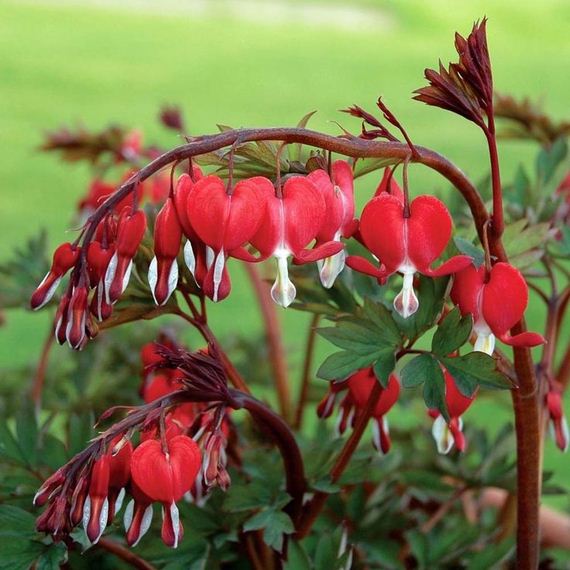
The Bleeding Heart Bacchanal is very easy to take care of, as you won’t need to do any pruning and the flower is both pest and disease free. However, it needs well-drained soil that is neutral or slightly alkaline and rich in humus. Make sure to plant it where there’s partial shade.





